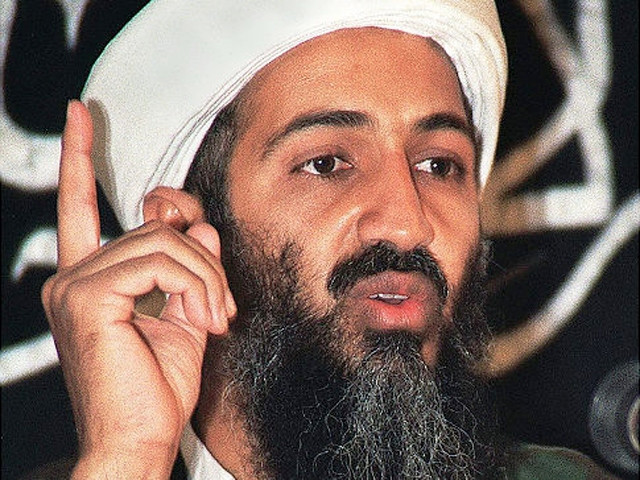Osama bin Laden and after
Osama bin Laden’s death will be good for Pakistan in the long run.

The words used by the US president would suggest that it was an operation carried out exclusively by the Americans and the Foreign Office’s statement, issued several hours after the news broke, also confirmed this. American news reports have said that the Pakistanis were not told of the identity of the ‘high value’ target till just before the operation began. If all of this is true — and it really seems fantastical on the face of it that something like this could have happened without Pakistan’s tactic or overt approval/assistance — then the obvious question arises that what was Osama bin Laden doing in Abbottabad, a garrison town, in a house that was a stone’s throw from the Pakistan Military Academy (PMA). How was bin Laden’s presence not detected by Pakistani intelligence agencies given that Abbottabad is not some remote, relatively inaccessible location in, say, Fata, but is less than two-hour drive from Islamabad, and is a tourist spot in itself. The character of Abbottabad city is stamped with military symbols, its economy dependent on an unusually large military presence. Abbottabad is also close to Mansehra where, right after the Mumbai attacks, a training camp run ostensibly by the Lashkar-e-Taiba was shut down by the Pakistani authorities.
The US president said that he had known about bin Laden’s presence in Abbottabad since August 2010 but decided on the operation only “last week”. The question to ask here is, that was this operation kept under wraps from Pakistan as well, and if so, was this because of the recent tempestuous relations between the ISI and the CIA? Mr Obama did say that there was intelligence cooperation from the Pakistanis, though the statement by Pakistan’s Foreign Office said that the operation was an American one, in line with America’s stated policy of using all the resources at its disposal to get bin Laden.
According to reports, the Americans have captured two wives of Osama along with some children. Once they land in the US, we may well expect some more revelations. The Arab wives may not know much about the geographic landmarks of Pakistan but their ‘debriefing’ could well reveal a lot about the range of movements they made with Osama and without him, about who gave them shelter and who took them around, and who was responsible for their day-to-day housekeeping. How did they get to reside in a large house barely a 15 minute walk from the PMA? Who or what provided bin Laden with the feeling of security he needed before settling in Abbottabad?
Many questions will be asked, if not in Pakistan then outside Pakistan. Was bin Laden given a sanctuary by the Pakistanis, in a place least suspected of being a hotbed of terrorism, in return for concessions on the Taliban front? Or whether the intelligence that led to his death, in fact, came from Pakistan, and if so, why isn’t Pakistan owning up to this and claiming credit for snaring a universally wanted man? In all of this, one thing is clear: Pakistan should have hunted the man down on its own, because America is not the only country that has suffered at the hands of al Qaeda and its allied jihadi outfits. Pakistan and its people have suffered thousands dead and many more maimed. Clearly, it was very much in our own interest to cut down al Qaeda and dismantle it, but it seems some people had other ideas. Every time an American official said Osama could be in Pakistan — the last one who said this was US Secretary of State Hillary Clinton — Pakistan’s answer was, give us ‘actionable intelligence’ and we will take action against him. Was ‘actionable intelligence’ shared by the CIA with the ISI, considering that President Obama has mentioned “cooperation” from Pakistan in his speech? If that is the case, then a new chapter of fence-mending may have started between the two agencies.
The war against terrorism is not over, but certainly a very important chapter has come to an end. Osama bin Laden was the central icon of a movement that has engulfed the entire Islamic world. He was a magnet to the Arab warriors but it is likely that al Qaeda itself will not die with him and will be run by Ayman alZawahiri.
Pakistan’s jihadi organisations have owed allegiance personally to Osama, with the Taliban calling him “Sheikh Osama” in their pamphlets. A Pakistani, a former army commando, by the name of Ilyas Kashmiri will likely be alZawahiri’s second-in-command. Chances also are that Osama’s death will trigger revenge attacks from al Qaeda and its local affiliates, that is, if Osama’s rather tame death in Abbottabad does not imply the beginning of the end of terrorism in Pakistan.
Pakistan may well also face the brunt of global backlash and criticism if it still denies the presence of al Qaeda operatives on its soil. That said, Pakistan’s home-grown extremism and anti-Americanism will create problems for the establishment as well as the elected government in case any strategic adjustments are made in the wake of bin Laden’s death and the blatant rebuttal of the Pakistani claim that he was not in Pakistan. The ‘al Qaeda connection’ that began during the war against the Soviets and continued later in the nexus with Pakistan’s jihadi militias, has done Pakistan no good. The state has virtually lost its internal sovereignty even as the Pakistan military strives to protect its external sovereignty. It is morally unjust for the state to deny that the war against terrorism is Pakistan’s war. Coupled with economic collapse, this policy of isolationism can irreparably damage Pakistan unless some corrective measures are now taken.
Published in The Express Tribune, May 3rd, 2011.















COMMENTS
Comments are moderated and generally will be posted if they are on-topic and not abusive.
For more information, please see our Comments FAQ